Moral concern for the welfare of animals used in different industries, particularly the food sector, is rapidly growing. However, information on the ethical “footprint” of a product, defined by the cumulative load of aversive experiences typically endured in the production process, is not easily available to consumers, investors, advocates, funders, and policy-makers.
The Welfare Footprint Project is a research effort aimed at fulfilling this gap. It seeks to quantify the loss of welfare (suffering) experienced by animals in a way that enables its comparison across living conditions, along with the assessment of the most effective courses of action to improve their well-being.
Our mission: to inform efforts for the prevention and alleviation of animal suffering.
The project’s main goals are summarized below.
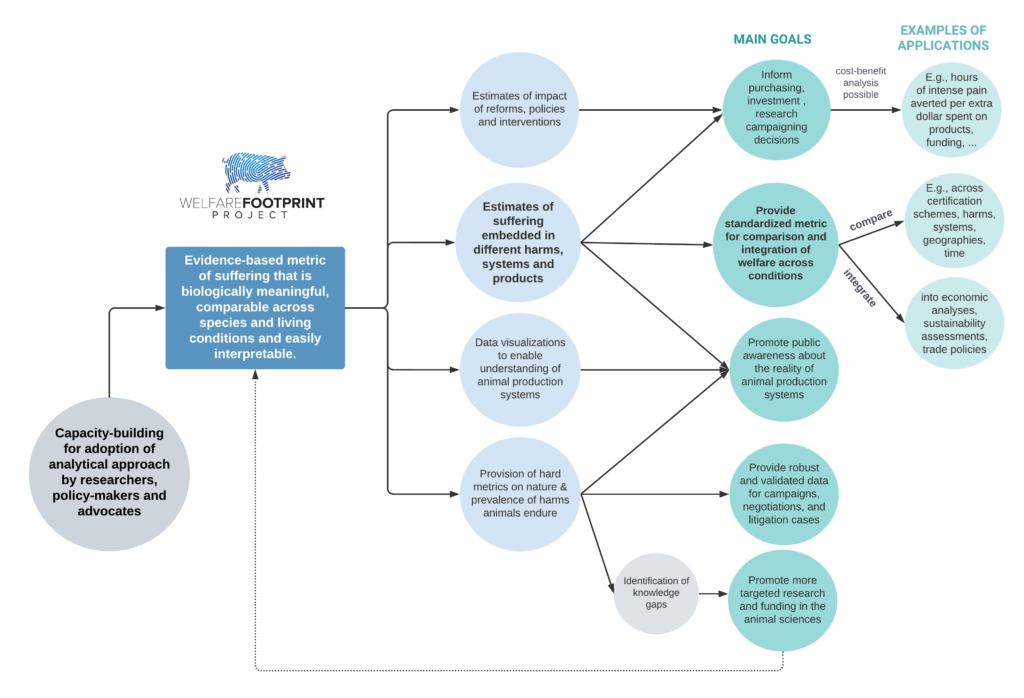
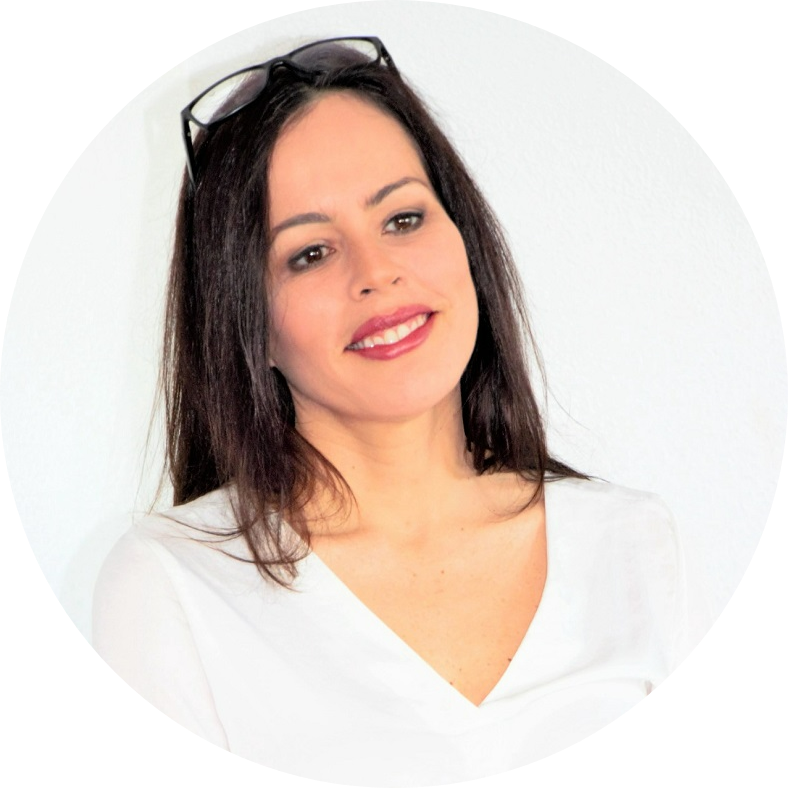
Cynthia has a Ph.D. and post-doctoral degree in zoology (animal behavior and cognition) from Oxford University, and extensive experience in data analysis and global health research, specially in the areas of metrics and the effectiveness of interventions. She has developed several research projects for research institutions in the UK, USA and Brazil, and authored over 70 scientific publications (list here), book chapters, and education materials. Additionally, she has taught data analysis and experimental design for researchers in the biomedical field for several years. She also has an MSc degree in Ecology and has done extensive work on the impacts of animal agriculture.
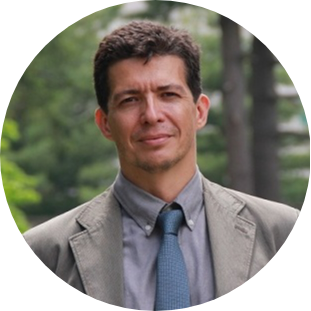
Wladimir J. Alonso holds a Ph.D. in epidemiology from Oxford University and brings over two decades of research experience in evolution, animal behavior, and global health to the Welfare Footprint Project. Known for his innovative solutions in analytical and visualization tools, Wladimir has developed key methodologies like the Cumulative Pain method, which is central to the project’s mission of quantifying animal welfare and ethical considerations in products and services. He has collaborated with academic institutions worldwide, taught workshops on time-series analyses globally, and published over 100 scientific studies in peer-reviewed journals (list here).
We work with a number of collaborators, most of whom are researchers in the fields of animal welfare, veterinary science, and pain research. We also work with statisticians, software developers, and designers. A full list of our collaborators will be available soon.

Kaitlin completed her doctoral degree in Animal Science from Michigan State University in 2017. During her time at MSU, Kaitlin conducted research with laying hens and pigs, completed and taught animal behavior and welfare assessment courses, and worked extensively on-farm with various livestock species. Kaitlin is passionate about interdisciplinary collaborations and has worked with behaviorists, geneticists and engineers from around the world to help develop practical solutions to improve the welfare of livestock species. Currently, Kaitlin serves as an independent farm inspector for Human Farm Animal Care where she ensures standards are being met for the Certified Humane ® label.
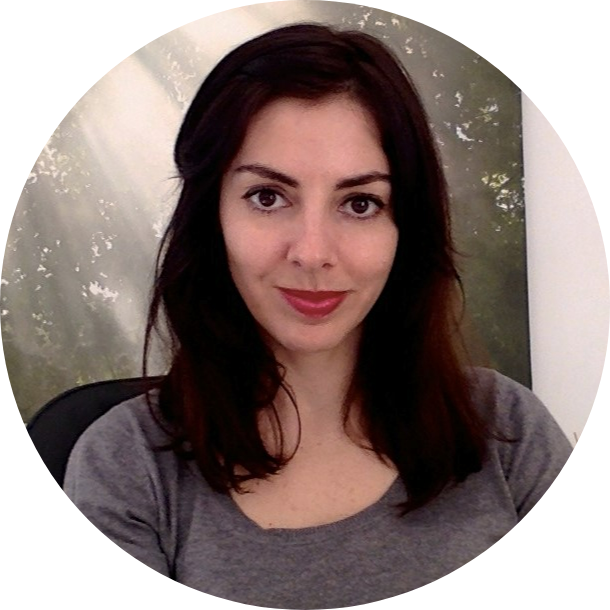
Elsa graduated as a Doctor of Veterinary Medicine from Murcia University, Spain, in 2001. She followed official veterinary training at Bristol University and worked in the UK as an official veterinary surgeon and local veterinary inspector until 2005, after which she did a traineeship at DG SANCO of the European Commission, at the Epidemiology and Zootechnics Unit. From 2006 to 2008 she was granted a field epidemiology fellowship at the Spanish National Centre of Epidemiology. From 2009 through 2012 she worked for FAO (Cairo) on highly pathogenic avian influenza control and prevention. Over the last decade she has worked as an epidemiologist, focusing on research areas that use a “One Health” approach.
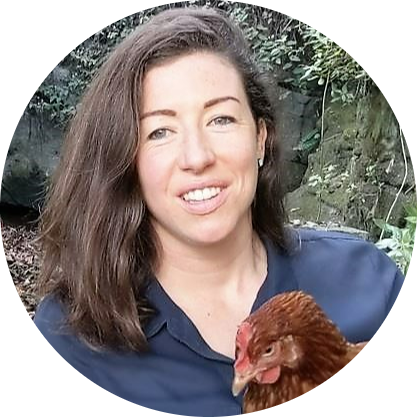
Kate has a Ph.D. in animal behaviour and welfare, and an honours degree in animal science from the University of Sydney, Australia. She has a decade of experience working in animal welfare spanning research, animal welfare organisations, agricultural organisations, consultancy, and teaching. Kate is currently the Senior Animal Scientist for Global Food Partners, Singapore and an Adjunct Lecturer with the University of Queensland, Australia. She focuses on using research to make real-world changes in animal welfare in the agricultural industries worldwide.
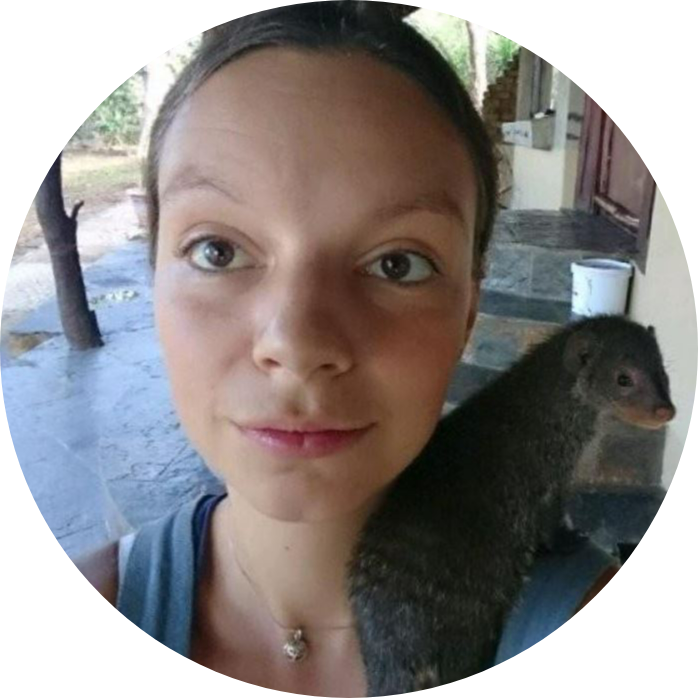
Cleo has an M.Sc. in Applied Animal Behaviour & Animal Welfare from the Royal (Dick) School of Veterinary Studies (University of Edinburgh) and a B.Sc. in Animal Biology from Stirling University (UK). She has extensive experience in assisting and managing complex research projects for multiple research institutes and private laboratories. She has built up a strong technical background in the South African Bushveld deciphering wild animal behaviour and bio-acoustics, in cancer research and behind an electron microscope looking for a link between positive animal welfare practices and the abundance of microglia (the brain’s primary innate immune cells).

Emiliano is a collaborator on wild animal welfare research. His main research interests are on invasive alien species and the spatiotemporal behaviour of rodent species, particularly porcupines. For his Ph.D., he conducted research on parakeet populations in Italy and on rodent behaviour in general (including live captures). From 2013 to 2017 he worked on the conservation of terrestrial rodents and soricomorphs, Eurasian red squirrels and on a project on invasive Siberian chipmunks. Since 2018, he has also been involved in wild boar management. He holds a permanent researcher position at the Italian National Research Council in Sesto Fiorentino (Florence, Italy).

Andrea is a collaborator on wild animal welfare research. His main research interests are wild animal self-medication, medicinal plants and management. He also investigates the daily activity rhythms of wild boars, having discovered that, although nocturnal, wild boars tend to avoid the full moon. He developed the first study on porcupine ecology in Central Africa, taking part in the discovery of a new intestinal parasite in this species. Through a collaboration with CNR-IRET (National Research Council), he carries out several studies on the impacts of alien species.

Olga is the talent behind the scientific illustrations of the project. She graduated from Voronezh State University with a Master’s degree in Computer Science. She then studied fine arts and art history for 4 years. For the past 7 years, she has been working as a freelance digital illustrator, especially in the scientific and medical fields. “I’ve always loved drawing and was interested in biology and medicine. Later, I got to know this area better and realized this was exactly what I want to do!”. She also does portrait and magazine illustrations. Her workflow includes a research phase, sketching, and rendering of the final drawings. “Most of all I like to learn something new. Each project is a new part of the world that opens before me”.
Research on the impact of several welfare reforms for farmed animals is kindly supported by the Open Philanthropy.
